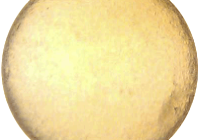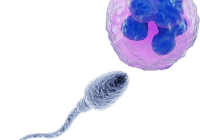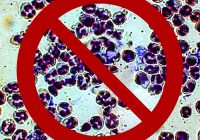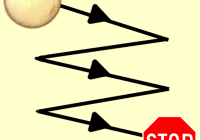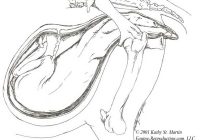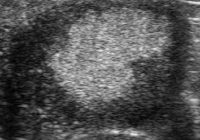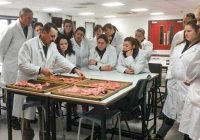Improve Pregnancy Rates in Older Subfertile Mares! How can one improve pregnancy rates in older subfertile mares? This category of mare is notorious for having lower pregnancy rates, and this becomes even more annoying when one is performing a higher-cost procedure such as embryo transfer. A perennial question therefore is “can we improve pregnancy rates in those older… Read More »
Preparing the Uterine Cytology Slide – Pre-breeding diagnostics should include the simple, rapid and easy-to-perform uterine cytology slide, which takes only about 15 minutes By Jos Mottershead & Kathy St. Martin A very useful, rapid and easy first step diagnostic prior to breeding a mare is to prepare and read a uterine cytology slide. Minimal equipment is required,… Read More »
Dead Sperm Do Not Cause Greater Uterine Immune Response! We know that sperm are the primary instigator for initiating the mare’s post-breeding uterine inflammatory response[1], but one not infrequently hears commentary to the effect of concerns that there may be a greater response if the insemination dose contains a higher number of dead sperm. Cousseau et al have… Read More »
Obese Mares Have More Problems Than We Thought! It has been previously documented that obese mares have a higher tendency towards early embryonic death, particularly in hot weather and this has been put down to the core temperature of these mare potentially being higher than other mares, with a negative impact on embryo survival[1]. At ISER XIII Meikle… Read More »
ISER XIII “Snippets” – Held in Brazil in August 2023, ISER XIII produced a variety of useful research with immediate clinical value, here we review some of the presentations The thirteenth International Symposium on Equine Reproduction (ISER XIII) was held in Foz do Iguaçu, Brazil between July 10th–14th, 2023. Around 400 veterinarians, researchers and animal scientists were present,… Read More »
Cessation of migration (fixation) of the embryonic vesicle – Is cessation of migration (fixation) of the embryonic vesicle inextricably linked to days 15-17 of pregnancy? By Professor John Newcombe, BVetMed, MRCVS Is cessation of migration (fixation) of the embryonic vesicle inextricably linked to days 15-17 of pregnancy? Introduction The ability of the embryo to signal to the endometrium… Read More »
Backwards Foalings – reverse presentations of the foal – are rare but present particular difficulty. Potential for repetition is also present By Professor John Newcombe, BVetMed, MRCVS Backwards foalings – reverse presentations of the foal – are rare but present particular difficulty. Potential for repetition is also present. Lay abstract In posterior (backwards) or caudal presentation, the foal… Read More »
When lecturing on equine reproduction our lead lecturer Jos Mottershead often comments that there are several words to lose in order to avoid confusion and – plainly – being incorrect. The words he always cites are “never” and “always”, because the moment that one uses those words, invariably someone in the audience comes up with a situation which… Read More »
Seasonal absence of accessory ovulations in pregnant mares: What is the need for eCG? – Secondary ovulations or luteal developments support early pregnancy – but what if there is a seasonal absence of accessory ovulations? By John R Newcombe, Equine Fertility Clinic, Warren House Farm, UK Introduction Years before the use of diagnostic ultrasound, WE Allen noticed that secondary… Read More »
Horse Breeding Short Courses and Tuition from Equine-Reproduction.com Imitated by some – duplicated by none! These courses are considered by many to be the most complete single equine reproduction short course and tuition available. 2026 Course Dates to be Announced Shortly! 2026 Spring Equine Reproduction Short Courses are Now Completed! Please check out our one-on-one individual tuition program!… Read More »

